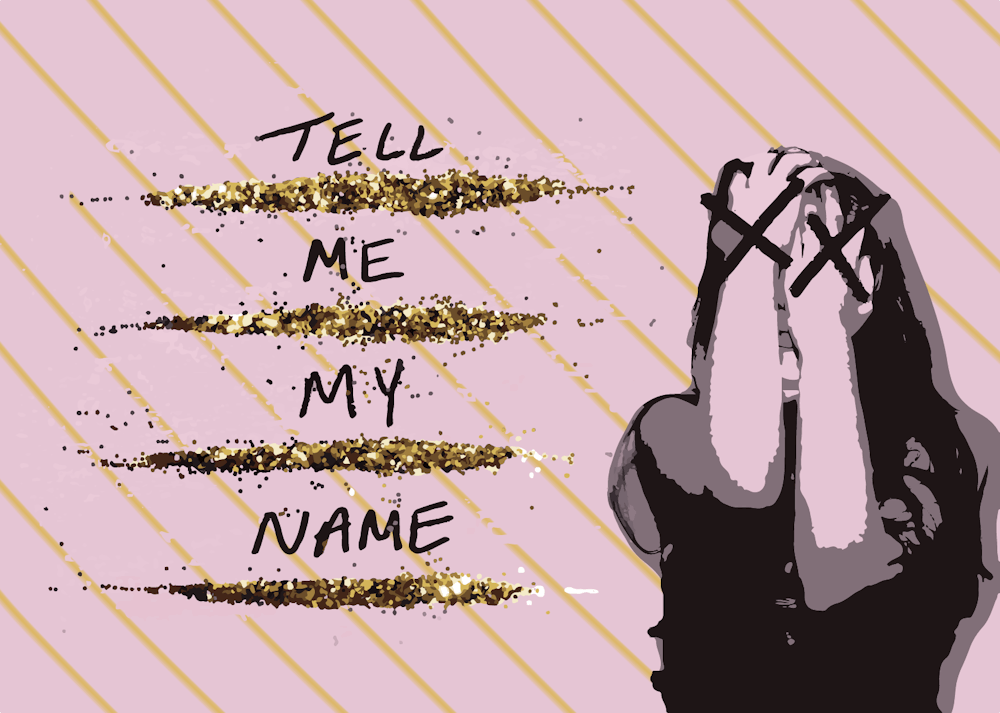At one point in your schooling, you probably read F. Scott Fitzgerald's famed work "The Great Gatsby." It's also fair to assume having kept up with pop culture and young adult trends over the last decade that you've read or watched a dystopian book or movie like the "Uglies" series or "Divergent."
Amy Reed's "Tell Me My Name," released in early March, combines the lavish lifestyle experienced in "Gatsby" with a semi-futuristic society where the entire country is run by a corporation.
Fern has lived on Commodore Island, just outside of Seattle, her whole life with her two dads. Unlike her classmates, her fathers were never the higher-ups at A-Corp — the Seattle-based company that employs the entire island's population — so she isn't used to a life of luxury.
In fact, she resents it.
This is until she starts hanging out with Commodore Island's resident ice princess, Tami. Tami is a combination of Fern's biggest pet peeve, wealth, and her greatest source of envy. Tami has everything, including Fern's former best friend and longtime secret crush, Ash.
As if this wasn't enough for Fern, she also forms an unlikely friendship with Ivy Avila, a Hollywood starlet who is trying to find her footing post-rehab on this dark and mysterious island. And thanks to Fern's never-ending luck, she's swallowed into a world that will spit her out as a completely different person.
The audiobook's narrator Jorjeana Marie has an alarmingly tranquil tone that contrasts from the book's inherent message of plain alarm. While the delivery was not what I expected, it added dimension to the novel and shocked me given the content's nature, reflecting the racism and classism of our own society.
The novel's structure poignantly highlights pre-existing problems of modern society – certain groups of people believing they're better than others just because of monetary status.
While Fern is the narrator, she's very passive to comments made at the expense of Ash by Tami, his girlfriend. Ash comes from a combination of diverse backgrounds, and as a result, Tami is shocked his parents, who are A-Corp's business moguls, can speak English as well as they do.
Similar to Nick in "The Great Gatsby," she is absolutely disgusted by the way this other half of society lives, and yet, she cannot seem to take herself away from them, hungry to learn more.
Experiencing this world through Fern's vivid descriptions was almost poetic at times. She continuously describes people like Ash and Ivy as gods and goddesses, marveling at Tami's effortless tolerance for alcohol as well as her ruthlessness toward others.
Fern is also taken aback by Tami constantly calling her "special" – in the regard that she doesn't care about her wealth – all the while disparaging her for it in front of her richer friends.
Fern often takes herself out of the situations she's in and analyzes them from a bird's eye view, or she manufactures an entirely different scenario to ponder, which is interesting, but at times can be a little much – it's very confusing (and relatable) to watch her despise a life that she wishes she had.
But at the same time, there's only so much complaining a character can do before it becomes too much. Fern is whiny, and probably the least likable character I've ever encountered, aside from Holden Caulfield.
She makes it very clear she does not want to be rich or live out Tami and Ivy's lifestyles on a daily basis. But she is constantly seeking their approval and is willing to do anything to get it.
The first time she and Tami venture into Seattle, Fern goes from a girl who never drank alcohol to one who can't seem to get enough, completely selling herself to fit into the world that she's been thrown into.
I enjoyed the buildup and analysis of the Commodore Island's culture but would have done anything to analyze it from the inside rather than Fern's point of view.
There were several moments where Fern observes that Tami and Ivy look less than happy in their prospective lifestyles at times before quickly pulling their facades back together. This left me aching to know the depth of what was behind the glitz and glamour.
"Tell Me My Name" has social critiques that rival those of any produced by the current generation of authors thus far, putting an updated spin on an everlasting story.
Reach the reporter at skenoun@asu.edu and follow @sabrinakenoun on Twitter.
Like The State Press on Facebook and follow @statepress on Twitter.
Continue supporting student journalism and donate to The State Press today.




